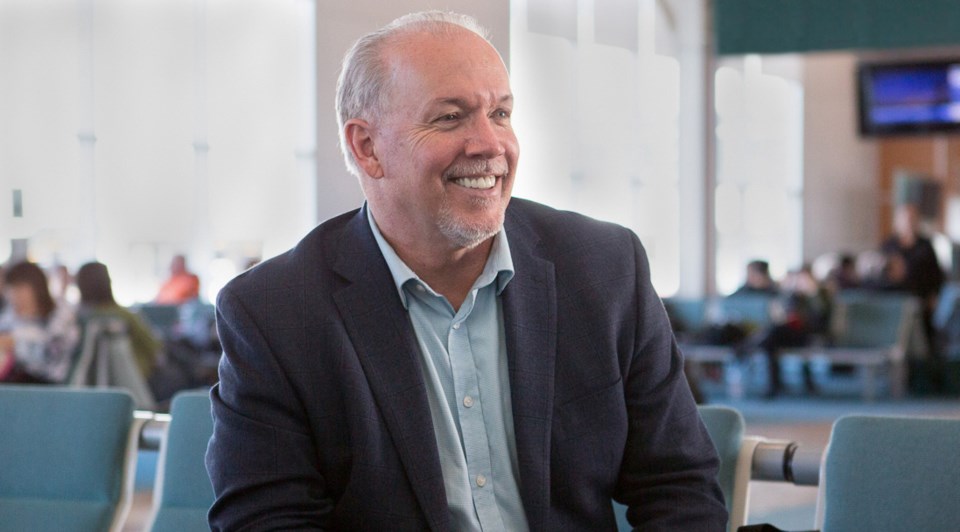At the end of November, B.C. became the first jurisdiction in Canada to pass the United Nations Declaration on the Rights of Indigenous People, or UNDRIP for short.
By now I am sure you’ve heard the acronym UNDRIP, but a lot of people are still a little confused as to what it is.
Reading the 40-plus articles can be daunting and complex. Simplified, the sprit of UNDRIP is about Indigenous people having the same opportunities and the same human rights as everyone else on this planet.
UNDRIP was presented in the legislature as Bill 41 and was passed unanimously, becoming the Declaration on the Rights of Indigenous People Act. The unanimous part is really important — it means that everyone in the legislature agreed it needed to be done. I emphasize this because if everyone agreed, it would seem to be something that will continue to be valued, no matter who is in power.
“UNDRIP acknowledges the human rights of all people,” said Premier John Horgan. “UNDRIP is a recognition of Indigenous people because its their land. Land and language equal culture. It’s time we stand together and work toward mutual prosperity. We need to be sharing instead of dominating.”
This act prioritizes respecting and implementing the rights of Indigenous people across the world, and is the result of 25 years of work between members of the United Nations and Indigenous groups. It prioritizes Indigenous rights as a collective and for individuals.
“B.C. is a diverse landscape with diverse languages, it’s not homogenous and not all Indigenous people are the same,” Horgan said.
By passing this bill and ultimately turning it into an act, it upholds the rights of Indigenous people to practise their culture and protocols, and honour their teachings, which includes language and ceremony. It also provides space to develop and grow their economic developments and initiatives.
During my conversation with Horgan, he explained to me that every act has a section at the beginning titled “Definitions,” where all the key words are listed along with their definitions.
In the Declaration Act, the “Definitions” section has been replaced with an “Interpretations” section. This is the first time in B.C. history this has been done.
“For this act we can only interpret it, we are sharing the information as it’s been told to us through oral traditions and storytelling,” said Horgan.
When I read the UNDRIP articles, I was moved by the part on policy and ensuring Indigenous people have a role in this and space is made for them. Swapping out “Definitions” for “Interpretations” does just that.
B.C. is the first province to pass this act, and I am proud to live in a province that values this. I think we should all acknowledge the courage our premier has to stand up for what’s right, and work hard to push it across the finish line.
I truly believe Horgan’s intentions for being inclusive and respectful are authentic, and I admire him for it. I have been fortunate to speak with him on Indigenous issues, sing with him in the Big House and personally witness many of his actions. I am humbled by his willingness to learn.
“Each of us is the amalgamation of all the people you come across, and that includes the good and the bad, and we all learn more from our mentors,” said Horgan. “I was raised by a single mother who taught me everyone is equal. I didn’t know what racism was.”
Horgan talked about being 10 years old playing lacrosse with Chris Tom and other children from Tsartlip First Nation, and then in his teens playing basketball with Greg Louie and other teens from Ahousaht First Nation at Reynolds Secondary School.
Tom is the former Chief of Tsartlip First Nation, and Louie is the Chief of Ahousaht First Nation.
Horgan has been working toward implementing UNDRIP for a long time. In the spring of 2017, Horgan attended an Assembly of First Nations meeting.
“I was the leader of the opposition and no one really knew who I was,” said Horgan. “I stood up and I made my pitch, I said the treaties needed to be revived and UNDRIP needed to be implemented.
“Greg Louie was there. He stood up and said: ‘I went to school with John and he was a good man then, and he’s a good man now,’ ” Horgan said.
“We remembered each other from sport and we always treated each other as equals. Even the first girl I had a crush on was Indigenous — her name was Angel Sampson.”
Charla Huber is the director of communications and Indigenous relations for M’akola Housing Society.



